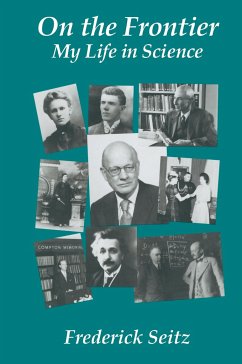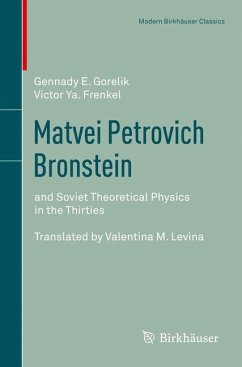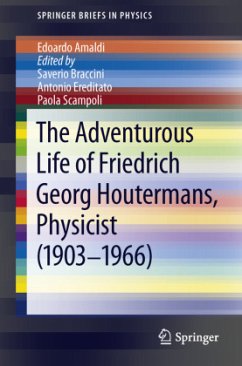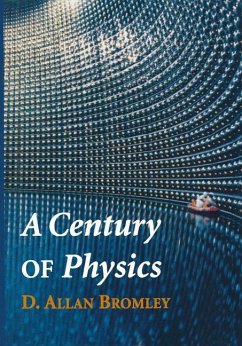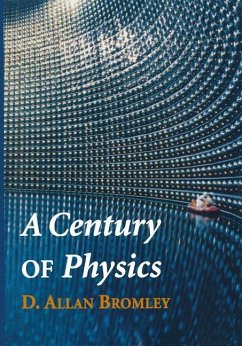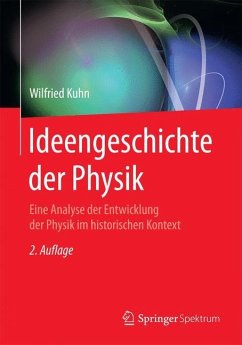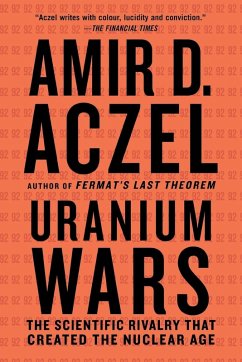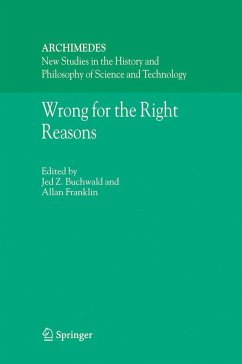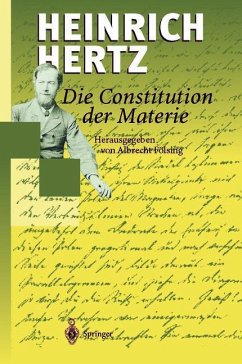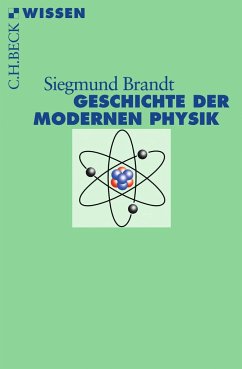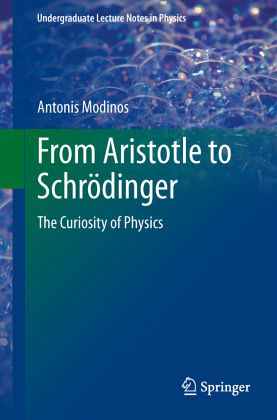
From Aristotle to Schrödinger
The Curiosity of Physics

PAYBACK Punkte
23 °P sammeln!
From Aristotle to Schrödinger: The Curiosity of Physics offers a novel introduction to the topics commonly encountered in the first two years of an undergraduate physics course, including classical mechanics, thermodynamics and statistical mechanics, electromagnetism, relativity, quantum mechanics, atomic and molecular physics, and astrophysics. The book presents physics as it evolved historically; it covers in considerable depth the development of the subject from ancient Greece to the present day. Though the emphasis is on the observations, experiments, theories, and applications of physics...
From Aristotle to Schrödinger: The Curiosity of Physics offers a novel introduction to the topics commonly encountered in the first two years of an undergraduate physics course, including classical mechanics, thermodynamics and statistical mechanics, electromagnetism, relativity, quantum mechanics, atomic and molecular physics, and astrophysics. The book presents physics as it evolved historically; it covers in considerable depth the development of the subject from ancient Greece to the present day. Though the emphasis is on the observations, experiments, theories, and applications of physics, there are additionally short sections on the life and times of the main protagonists of physics.
This book grew out of the author's long experience in giving undergraduate and graduate courses in classical physics and in quantum mechanics and its elementary applications. Although meant primarily for the student and teacher of physics, it will be of interest to other scientists andto historians of science, and to those who wish to know something about physics, how it started, and how it developed to its present day magnificence and sophistication.
This book grew out of the author's long experience in giving undergraduate and graduate courses in classical physics and in quantum mechanics and its elementary applications. Although meant primarily for the student and teacher of physics, it will be of interest to other scientists andto historians of science, and to those who wish to know something about physics, how it started, and how it developed to its present day magnificence and sophistication.





